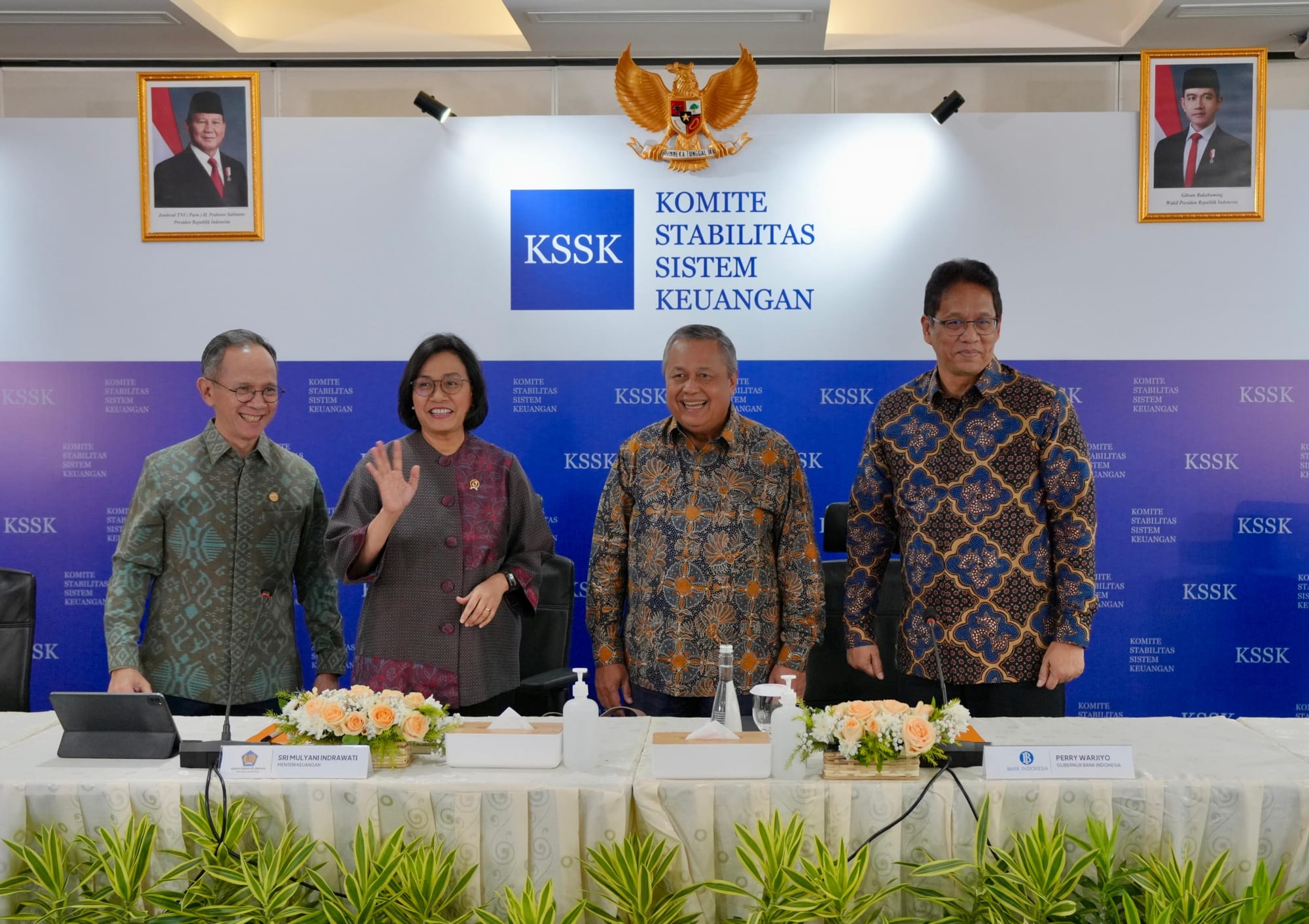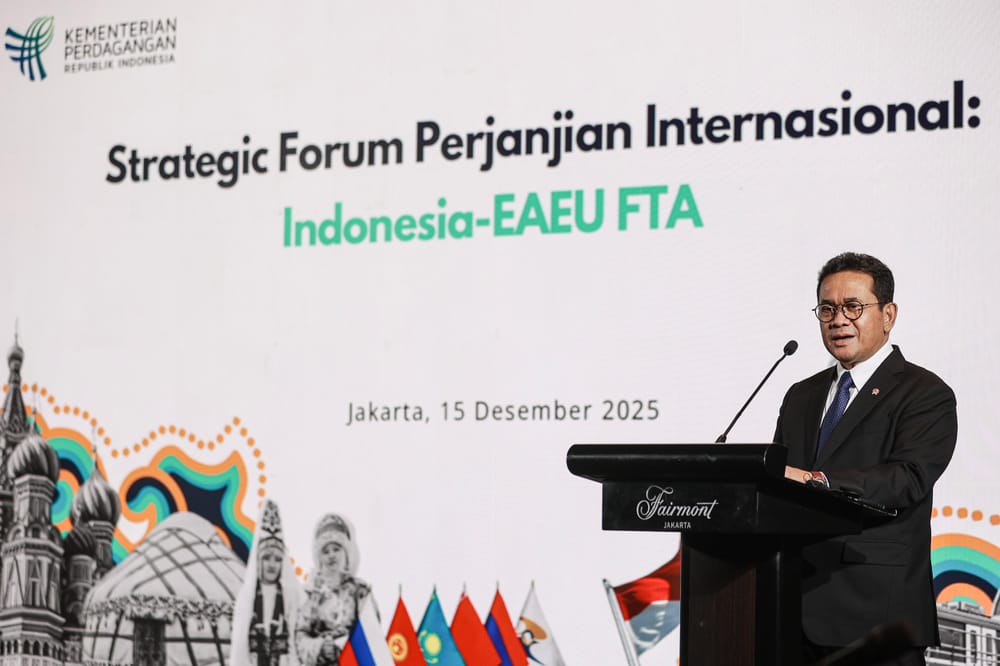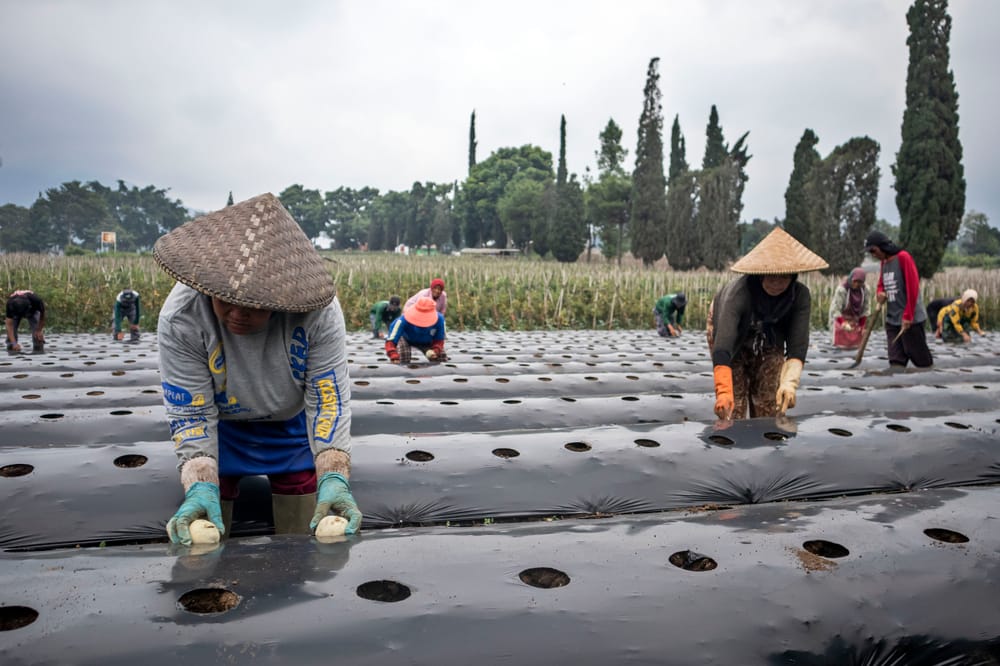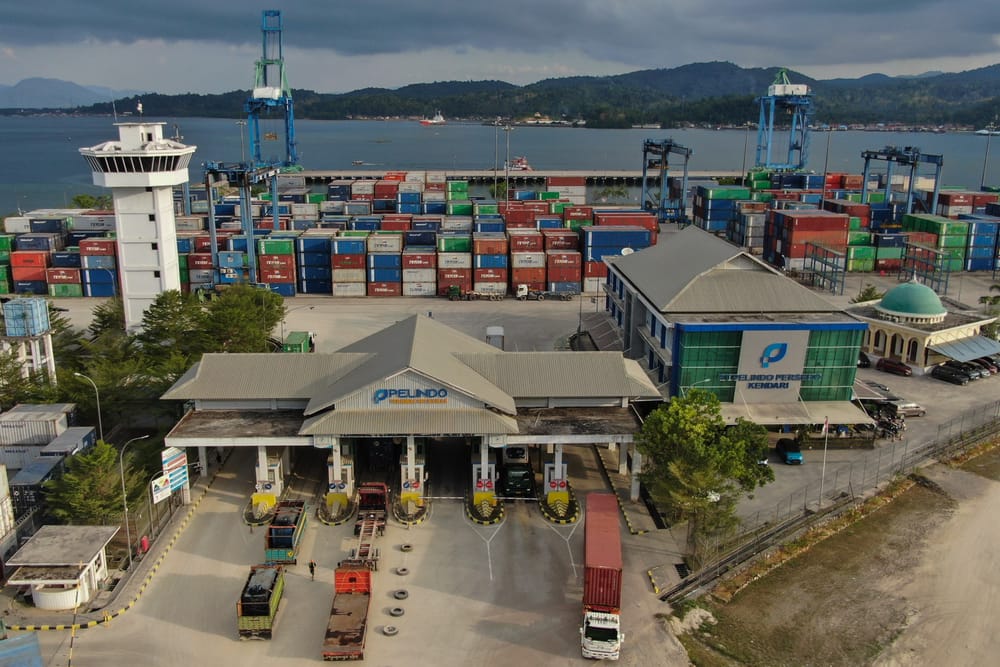As the second half of 2025 approaches, the attention of markets and businesses is once again focused on the stability of the national financial system. The policy of tariff increases by US President Donald Trump, as well as geopolitical and military upheaval in a number of countries, are considered to be two external factors that have the potential to destabilize global financial foundations, including Indonesia.
However, despite the uncertainty, the government through the Financial System Stability Committee (KSSK) remains optimistic that the fundamentals of the domestic economy are strong enough to reduce pressure and maintain growth until the end of the year.
In the KSSK press conference held last Monday afternoon (28/07) at Pacific Century Place, South Jakarta, Finance Minister Sri Mulyani said that financial system stability or SSK in the second three months of 2025 was maintained despite high global uncertainty.
He emphasized that current global conditions are heavily influenced by the dynamics of the United States' reciprocal tariff negotiations, as well as the escalation of geopolitical and military tensions, especially in the Middle East.
"We continue to strengthen the synergy of fiscal, monetary, macroprudential, and financial sector policies, so that not only stability is maintained, but also to encourage economic growth," Sri Mulyani said.
Maintaining stability amidst tariff storms and global turmoil
Since last April, trade tensions between the United States and China have risen again. The retaliatory tariffs imposed by both countries triggered global uncertainty. The impact was quickly felt: The World Bank cut its 2025 global economic growth projection from 3.2% to 2.9%. The OECD also revised a similar projection to 2.9%.
In the midst of this situation, the Indonesian government is still trying to maintain optimism, albeit with a vigilant attitude. "This is an environment that we observe and are aware of," said Finance Minister Sri Mulyani.
Domestically, a number of indicators give reason to remain optimistic. As of the end of June, CPI inflation was recorded at only 1.80% on an annual basis, well below the target. Core inflation also fell to 2.37%.
Meanwhile, the rupiah exchange rate, which had weakened to Rp16,865 per US dollar in April, managed to strengthen to around Rp16,235 by the end of June and remained relatively stable at around Rp16,315 as of July 25. This strengthening trend was supported by Bank Indonesia's interventions, including in the global and domestic foreign exchange markets.
In the debt securities market, the 10-year SBN yield fell from 6.62% to 6.51% as of end-July. This shows that investor interest remains good, with foreign net buy amounting to IDR58.29 trillion throughout the year. Indonesia's foreign exchange reserves also remained high, equivalent to more than twice the international adequacy standard.
The role of stimulus and state budget as shock absorbers
In addition to monetary policy, the government utilized the state budget as a shock absorber. Until the first semester, the realization of state spending reached Rp1,406 trillion, or 38.8% of the ceiling, with the deficit maintained at 0.84% of GDP. State revenues have also collected 40% of the target.
The focus of government spending remains on social protection programs and consumption stimulus. These include transportation subsidies and discounts, food aid for 18.3 million families, and wage subsidies for workers earning below IDR 3.5 million.
The government also launched a Rp24.4 trillion stimulus package in the second semester, including discounts on airplane, train, and ship tickets to boost tourism and domestic spending.
These measures are expected to maintain purchasing power, support labor-intensive sectors, such as textiles and footwear, and maintain growth in the range of 5% until the end of 2025. "The strengthening trend of the rupiah and low inflation are proof that our fundamentals are strong enough despite high global pressure," Sri Mulyani said.
In the midst of the tariff war, the government also moved quickly through diplomacy. US import tariffs on Indonesian products have been reduced to 19%, lower than the initial rumor of 32%. This is important for labor-intensive sectors that absorb a lot of labor.
Conversely, Indonesia's 0% tariff policy on a number of US products is expected to help suppress food and energy prices, curbing inflation.
However, challenges remain real. The manufacturing PMI (Purchasing Managers' Index) as of June is still contracting at 46.9, indicating that the industrial sector has not fully recovered. The global slowdown is also putting pressure on exports, although the trade balance was still a surplus of US$15.39 billion as of May.
BI's move: maintain stability, boost growth
In addition to fiscal stimulus, Bank Indonesia plays an important role in maintaining the stability of the national financial system until the end of 2025. BI Governor Perry Warjiyo emphasized that BI's policy response is carried out through four main pillars: interest rate cuts, exchange rate stabilization, liquidity expansion, and the provision of Government Securities (SPN) in the secondary market.
Since May 2025, BI has cut its benchmark interest rate to 5.25% to maintain purchasing power and boost growth. This rate cut was also reflected in longer tenor instruments, such as the 12-month SRBI which fell by around 40-50 basis points.
"The total SRBI position as of July 23 was recorded at IDR754.1 trillion, down from IDR923.5 trillion in January," said Perry Warjiyo. By doing so, liquidity in the market is expected to increase and facilitate lending.
To maintain the exchange rate, BI actively intervened, including through non-delivery forwards (NDF) abroad. As a result, the rupiah is relatively stable despite external pressures. "We direct the non-delivery forward to remain stable and in accordance with our conditions," he said.
In the banking sector, BI provides liquidity incentives for banks that extend credit to strategic sectors, such as agriculture, construction, and UMKM. The total incentives disbursed until early July reached IDR 376 trillion.
In addition, BI relaxed banks' foreign funding limits, and strengthened transaction digitization through QRIS. This includes trials in China, Saudi Arabia, and India.
"This policy is maintained within the stability corridor," he said.
From an expert's perspective: stability maintained, but growth remains tough
Speaking of external pressures, Deni Priawan, an international economics researcher at the Center for Strategic and International Studies (CSIS), has an interesting perspective. He highlights how initially many people were worried that America's protectionist policies, including Donald Trump's "America First" high tariffs, would trigger inflation in Uncle Sam's country.
"What people feared at first, when Trump made tariff policies, inflation there would be high. Because imported goods become expensive, supply is low, prices rise," Deni explained.
Usually, he continued, rising inflation will push the Fed to raise interest rates to cool the economy. If that happens, the effect reaches Indonesia: capital outflows, the rupiah is depressed, and inevitably Bank Indonesia must also maintain high interest rates to protect the exchange rate.
"But apparently, after Trump made deals with several countries such as Indonesia, Vietnam, the UK, the inflation is not as high as feared," he said.
As US inflation is relatively stable, analysts now predict the Fed could actually lower interest rates. "If the Fed lowers interest rates, there will be no pressure on the rupiah. In fact, the rupiah even strengthened," said Deni. This also provides room for BI to lower interest rates to boost the domestic economy.
But Deni cautioned that stable does not mean high growth. The biggest concern is in the real sector. "The growth will not be high. Foreign demand is declining, especially commodities like coal because China and India's demand is also falling. They want to switch to greener energy," he explained.
"Foreign demand is declining, especially commodities like coal because China and India's demand is also falling. They want to switch to greener energy," Deni explained.
Domestically, purchasing power is also still limited, as seen from the sluggish household consumption data.
Overall, Deni said, our macro conditions are safe: low inflation, stable rupiah, sufficient foreign exchange reserves, and capital inflow. "There are no major pressures to worry about. But if we want higher growth, the problem is structural," he said.
According to him, high growth requires deep reforms: legal certainty, efficient bureaucracy, better logistics infrastructure. "If high growth is forced using fiscal and monetary stimulus alone, it can overheat: inflation rises, the rupiah weakens. So there must be structural reforms," he explained. Without that, growth will only be high for a moment, not sustainable.
"The fundamentals are now good, stable, manageable. But to go up to 7%-8%, we need real reforms. Fiscal and monetary are now pulling on each other so that they don't get out of control. And at least, in the last few years, even though the growth is not high, the stability is maintained," said Deni.






